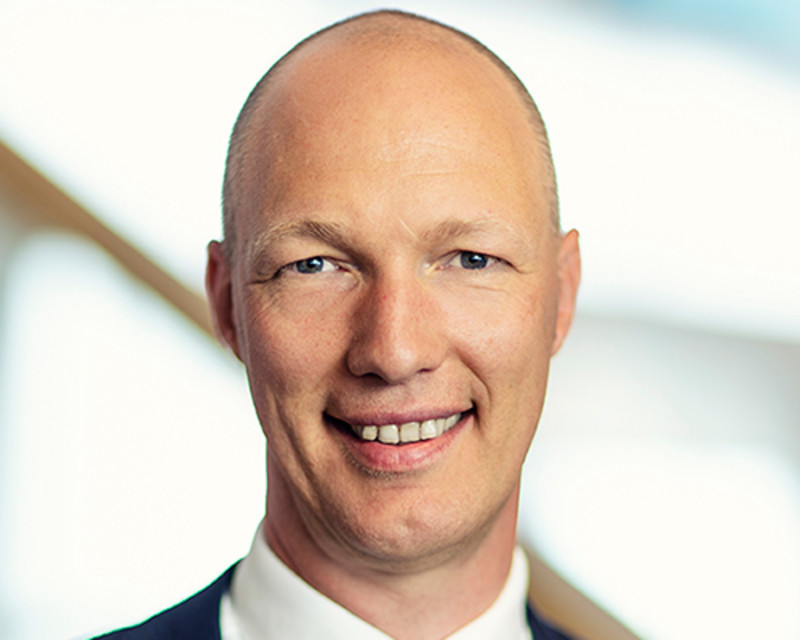

Nordic nations sweep top spots in country sustainability ranking
Finland, Norway and Sweden continue to dominate the upper ranks while Sub-Saharan Africa is gaining ground. Meanwhile, country case studies from Europe and Africa reveal added value of sustainability research for sovereign investing and government engagement.
まとめ
- Higher renewable uptake and lower emission intensities help define top 10
- Country case studies reveal the power of ESG performance
- Government engagement efforts see positive progress
Robeco has released the spring edition of its semi-annual Country Sustainability Ranking, which measures and ranks the performance of 150 countries on material environmental, social, and governance indicators that can impact economic growth and development.
Robeco’s country scores are a rich source of data and insights for investors seeking to comprehensively assess the risks and opportunities associated with sovereign bonds.
Complete scores and rankings are available on Robeco’s SI Open Access portal.
In the latest rankings, Nordic nations continue to toggle for a lead that hinges on thousandths of a decimal differences. Decimals this time favored Finland (9.04), which held on to the top spot, while Norway (9.03) narrowly edged out Sweden (9.029) to claim the second position.
Ocean Health Index scores deteriorated slightly for both Sweden and Finland, lowering environmental performance relative to Norway whose score remained stable. On the social front, the trio saw income inequality widen in recent years while gender equality advanced.
Increased renewable energy uptake and lower GHG emission intensities were decisive in defining the rest of the top ten. New Zealand returned to the top ranks after a brief exit in late 2023, while Iceland, a long-standing top-ten performer, unexpectedly dropped out due to appreciable declines in climate and energy criteria.
Figure 1 – the global overview of ESG scores

Source: Robeco Country ESG Scores as of April 2024.
The ranking round-up
Zambia and Mongolia were the biggest gainers, jumping 15 and 16 spots, respectively. Zambia’s performance improved across the board thanks to higher renewable energy uptake, improving economic equality, and strengthened political stability. A number of other Sub-Saharan African nations also improved their scores, including Liberia (+0.24), Uganda (+0.13), Burkina Faso (+0.15), Eswatini (formerly Swaziland; +0.18), and Burundi (+0.11).
Conversely, Hong Kong (-0.36), Malaysia (-0.22), Mexico (-0.23) and China (-0.19) all dropped by several notches. In the bottom ranks sit Yemen, Libya and Iraq which continue to score poorly across all ESG measures.
Scores of the world’s largest sovereign debt issuers stayed roughly the same. Japan (ranked 22nd) slightly improved its overall score (+0.02), while the US (ranked 41st) slightly declined (-0.09).
Mexico – bright prospects, shadow risks
Mexico is a classic case of the value of ESG scores to signal potential risks when everything else is coming up roses. It boasts a well-diversified economy with on- and offshore oil fields, a thriving agricultural sector and an expanding manufacturing base. Moreover, its close proximity and good relations with the US make it a nearshoring target for companies eager to reduce supply chain headaches by moving away from China and other emerging Asian countries, and closer to end markets. If fully realized, nearshoring could boost Mexico’s GDP by nearly 3%.1
But a decades-long decline in the country’s ESG score should give investors pause. Rampant organized crime, systemic corruption of public agencies, and ineffective law enforcement have weighed heavily on social and governance performance. Moreover, increasing water scarcity, pollution, deforestation and exploitation of natural resources are reducing environmental scores and stoking tensions in local communities already suffering from poverty, unemployment, and limited education and healthcare access.
Mexico must strengthen internal governance and social cohesion in order to boost investor confidence and fully capitalize on the long-term windfalls which nearshoring opportunities present.
Figure 2 – Mexico’s declining ESG scores could cause roadblocks to growth

Source: Robeco, Country Sustainability Scores, April 2024.
Portugal’s renewable powerplay
While Mexico attempts to seize windfalls, Portugal is using windfarms to help it build a robust economic future. Through shrewd fiscal management, it reduced public spending but still managed to prioritize investments in renewable energy. The renewable push has already generated much-needed jobs and economic growth across construction, manufacturing, installation, and infrastructure maintenance in a vibrant, next-generation sector. Long-term, it is helping build future economic resilience by reducing Portugal’s dependence on energy imports and increasing its control over energy pricing for citizens and industries.
サステナビリティに関する最新のインサイトを把握
ロベコのニュースレター(英文)に登録し、サステナブル投資の最新動向を探求しましょう。
Gender equality enhances economic potential
Treating women and girls fairly is not just morally right, it’s economically profitable. Persistent gender gaps reflects an environment where human capital is underdeveloped, underemployed and less productive. So it is unsurprising that countries with a better gender balance also tend to have more income and a brighter outlook.
Giving women and girls equal access to education, training and employment opportunities is only part of the solution. Access to quality health and family planning guidance are also important to reduce maternal mortality and adolescent birth rates.2
Ethiopia and Rwanda are illustrative of the economic power of parity-boosting policies. Over the past two decades, substantial increases in gross national income (GNI) per capita have paralleled substantial improvements in the GII scores for both countries, making it a material topic for those interested in sustainable economic development as well as sovereign investment research.
Figure 3 – Empowering women and national income in Ethiopia and Rwanda

Source: World Bank, UNDP, 2022. Rwanda and Ethiopia’s Gender Inequality Index (GII) scores are on the left axis. Purchasing Power Parity -adjusted GNI per capita is on the right axis. Data is from 2000-2022.
Country scores inform government engagement
Robeco’s Active Ownership and Engagement teams leverages its influence as investors to push for positive action on sources of risks that can negatively impact the profitability of portfolio companies or the economic development of sovereign investments. Country ESG research and rankings inform those efforts by providing objective data points of country and peer-group performance across a wide range of significant socioeconomic variables.
More specifically, climate change and biodiversity present urgent material risks to countries that demand the kind of large-scale action that only governments can provide. Robeco’s collective engagement efforts as part of the Investor Policy Dialogue on Deforestation (IPDD) in Brazil have moved the country one step closer to establishing a national registry to trace and track land clearing and livestock production practices in its powerful cattle industry, a major contributor to deforestation and biodiversity loss.
Together with the PRI3 , Robeco is also taking part in engagements with Australian authorities to address widening gaps between their Paris-aligned commitments and actual emission intensities. The group held 36 meetings during 2023 across a large range of federal departments, state treasuries, government advisory bodies and think tanks involved in the country’s climate policy decisions.
Figure 4 – The Australian outback is an outlier for emissions per capita

Source: EDGAR, Climate Resource, Robeco. Bubble size represents the magnitude of total GHG emissions per country. Current (2022) emissions per capita are plotted on the y-axis (top) vs. projected (2030) emissions per capita by country are on the x-axis (right). Source data as of 2023, the most recent available. Robeco analysis as of 2024.
For more details on country scores and rankings, visit Robeco’s SI Open Access portal.
Footnotes
1 Deloitte, Nearshoring in Mexico. July 2023.
2 As part of its social criteria, the Country Sustainability Framework uses the UNDP’s Gender Inequality Index (GII) which measures maternal mortality ratios, adolescent birth rates, share of women parliamentary seats, and differences in male and female education levels to determine a country’s overall gender equality performance.
3 Begun in 2000, the Principles for Responsible Investing (PRI), is an investor-led platform and the world’s leading proponent of responsible investment.
重要事項
当資料は情報提供を目的として、Robeco Institutional Asset Management B.V.が作成した英文資料、もしくはその英文資料をロベコ・ジャパン株式会社が翻訳したものです。資料中の個別の金融商品の売買の勧誘や推奨等を目的とするものではありません。記載された情報は十分信頼できるものであると考えておりますが、その正確性、完全性を保証するものではありません。意見や見通しはあくまで作成日における弊社の判断に基づくものであり、今後予告なしに変更されることがあります。運用状況、市場動向、意見等は、過去の一時点あるいは過去の一定期間についてのものであり、過去の実績は将来の運用成果を保証または示唆するものではありません。また、記載された投資方針・戦略等は全ての投資家の皆様に適合するとは限りません。当資料は法律、税務、会計面での助言の提供を意図するものではありません。 ご契約に際しては、必要に応じ専門家にご相談の上、最終的なご判断はお客様ご自身でなさるようお願い致します。 運用を行う資産の評価額は、組入有価証券等の価格、金融市場の相場や金利等の変動、及び組入有価証券の発行体の財務状況による信用力等の影響を受けて変動します。また、外貨建資産に投資する場合は為替変動の影響も受けます。運用によって生じた損益は、全て投資家の皆様に帰属します。したがって投資元本や一定の運用成果が保証されているものではなく、投資元本を上回る損失を被ることがあります。弊社が行う金融商品取引業に係る手数料または報酬は、締結される契約の種類や契約資産額により異なるため、当資料において記載せず別途ご提示させて頂く場合があります。具体的な手数料または報酬の金額・計算方法につきましては弊社担当者へお問合せください。 当資料及び記載されている情報、商品に関する権利は弊社に帰属します。したがって、弊社の書面による同意なくしてその全部もしくは一部を複製またはその他の方法で配布することはご遠慮ください。 商号等: ロベコ・ジャパン株式会社 金融商品取引業者 関東財務局長(金商)第2780号 加入協会: 一般社団法人 日本投資顧問業協会
























